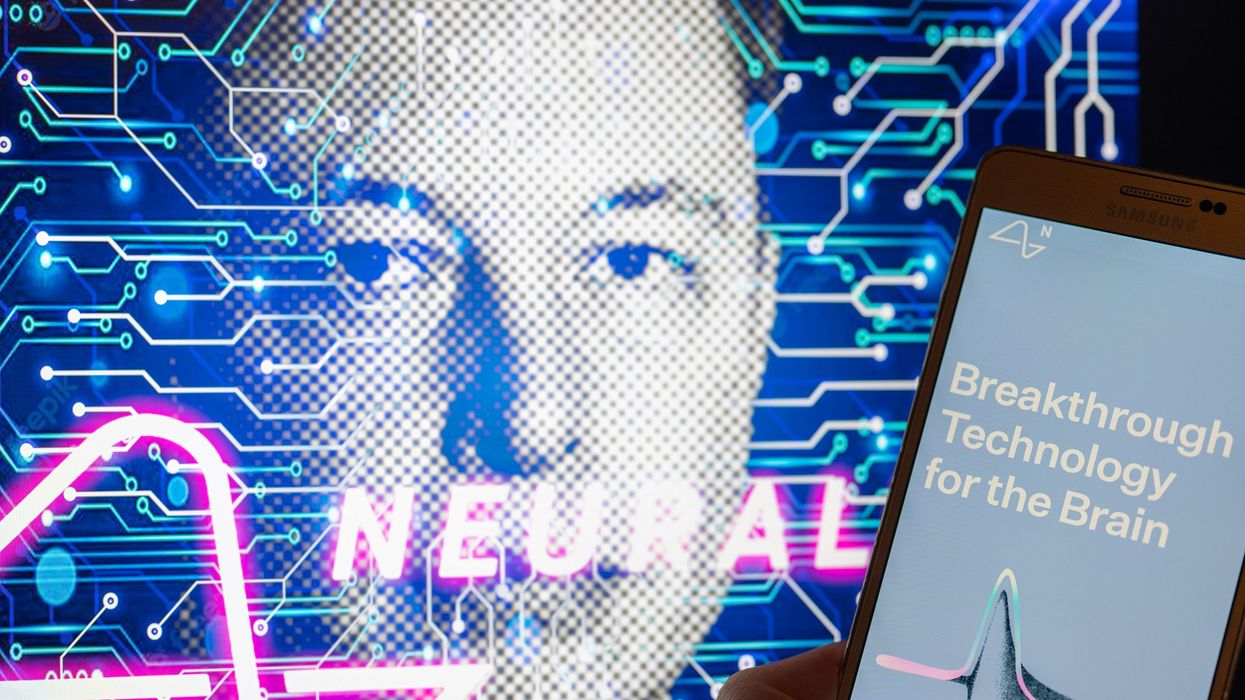

Neuralink, the neurotechnology company founded by Elon Musk, is at best having a rough initial go-round with the Food and Drug Administration’s human trials application process. The company also faces additional investigations by two other U.S. government agencies. These setbacks and the broad, cure-all expectations that its founder has placed on the company’s neural implant could now incite increased scrutiny from regulators. By contrast, however, other neurotech companies have to date managed largely to avoid such intense regulatory scrutiny.
Neuralink is developing The Link, a brain-computer interface that records and stimulates electrical activity within a user’s brain. Brain-computer interfaces, or BCIs, are neural implants that connect a user’s brain to external electronics. Getting the device into people’s heads for the first time is a major goal for the company. Musk himself stated at a press event the company held last November that they planned to start human trials by the end of May of this year and are, reportedly, looking for a partner with whom to coordinate initial experiments.
Despite Musk’s characteristically overeager timetable, Neuralink’s challenges in gaining FDA approval are only mounting. The Link, which is inserted across a user’s skull and into their brain, is categorized by the FDA as a Class III device, a designation of medical devices that “sustain or support life, are implanted, or present potential unreasonable risk of illness or injury.” FDA approval for a human test to potentially class III device status—known as an investigational device exemption (IDE)—can only be granted after an involved application process. In it, Neuralink must document how The Link is sufficiently safe and capable for its labeled indications. Just to initiate medical trials, in other words, substantial hurdles must be cleared first.
“If the experiments are tainted in some way, then the FDA may require new data. If the animal studies are questionable, they will have to be redone.”
—Victor Krauthamer, George Washington University
Neuralink has already failed this application once on the grounds of “dozens of deficiencies” cited by the FDA. These concerns included the stability of the device’s battery and charging system, the potential for its implanted electrodes to migrate throughout and damage brain tissue, and the damage that could be caused to the brain should the device be removed or upgraded.
The company’s path toward human trials will be further complicated by attention from other government regulators. The U.S. Department of Agriculture opened an investigation into the company’s alleged animal abuse in late 2022. The Department of Transportation opened a separate investigation into the company’s alleged mismanagement and interstate portage of biohazardous materials including neural implants collected from diseased animal subjects.
Ongoing investigations will not likely factor directly into how the FDA evaluates the data in Neuralink’s next IDE application, but it will likely complicate the process. Data from diseased animals and contaminated equipment may need to be rejected, says Victor Krauthamer, visiting professor of biomedical engineering at George Washington University and the former Acting Director of the FDA’s Division of Neurological and Physical Medicine Devices. “If the experiments are tainted in some way, then the FDA may require new data. If the animal studies are questionable, they will have to be redone.”
Further complicating Neuralink’s application are the many claims Musk and other company representatives have made regarding The Link’s purportedly extensive list of capabilities. Though the company has asserted that their device could restore sight to the blind, enable the paralyzed to walk, and perhaps even connect a user’s mind to unspecified “superintelligent AI,” the company’s previous IDE application concerned the system’s ability to let users to type out letters without using their hands or a keyboard.
IDE applications are evaluated based on device safety and efficacy. The latter is assessed with respect to a specific use, condition, or indication. While Neuralink’s current application will be limited to a single indication, like thought-to-type, Krauthamer believes that the larger claims made around the device may draw increased scrutiny from FDA regulators: “It may raise more questions for them because of these very broad, unsubstantiated claims. Officially, the FDA just reviews the evidence in front of them, but there’s a context to that, and I think that context may bring out additional caution.”
The FDA approval process is not without support, however. The National Institutes of Health maintains several programs to promote and assist neurotechnology research in both academia and industry. Neuralink chose to go without the assistance those programs offer, according to Kip Ludwig, a former NIH Program Director overseeing several neuroengineering initiatives: “Musk does not want anybody with any real medical device industry experience. He didn’t want to work with the government because of the bureaucracy. NIH is just trying to help people.”
Synchron, a separate neurotechnology company designing an electrode array embedded into a venous stent, was awarded an IDE in July 2021 and recently announced it will begin human trials with the Gates Vascular Institute in Buffalo, NY. Synchron began the FDA application process in 2016. According to Cristin Welle, former lead scientist of the NIH’s Neural Implant laboratory, Synchron’s success may be attributable to their device’s similarity to previously approved stents, which are more familiar to the FDA than Neuralink’s Link device is: “If it’s possible to draw specific criteria from past approvals, they will take that into account. They try to be consistent in their approach to a given technology.”
Reference: https://ift.tt/GV8RdMK
No comments:
Post a Comment